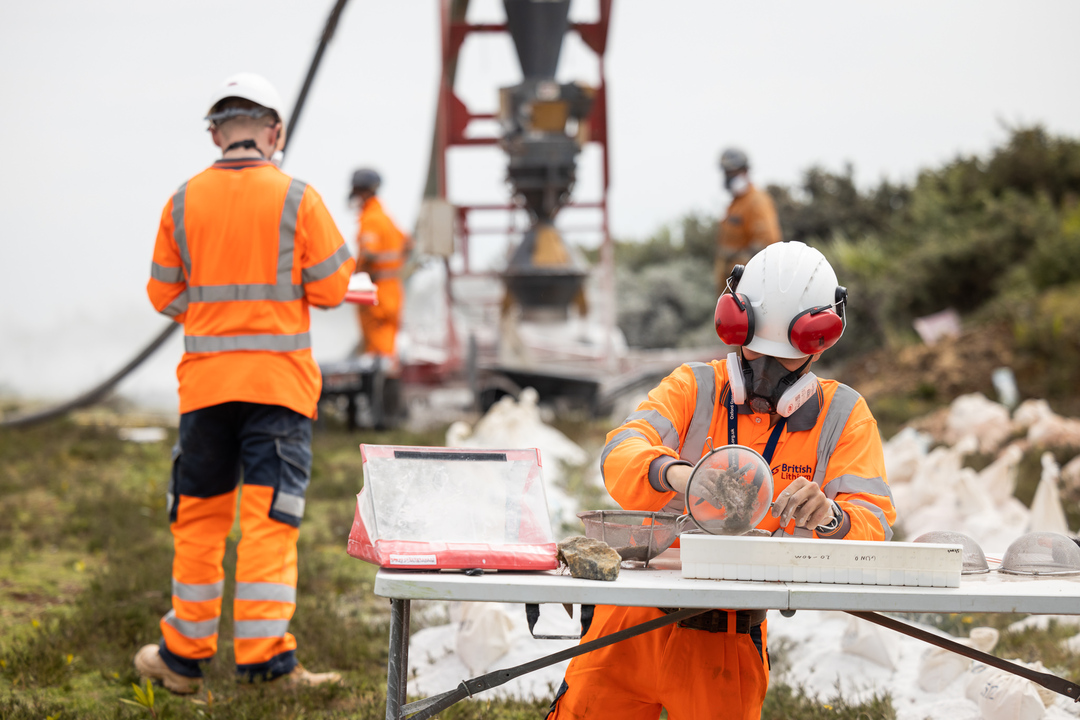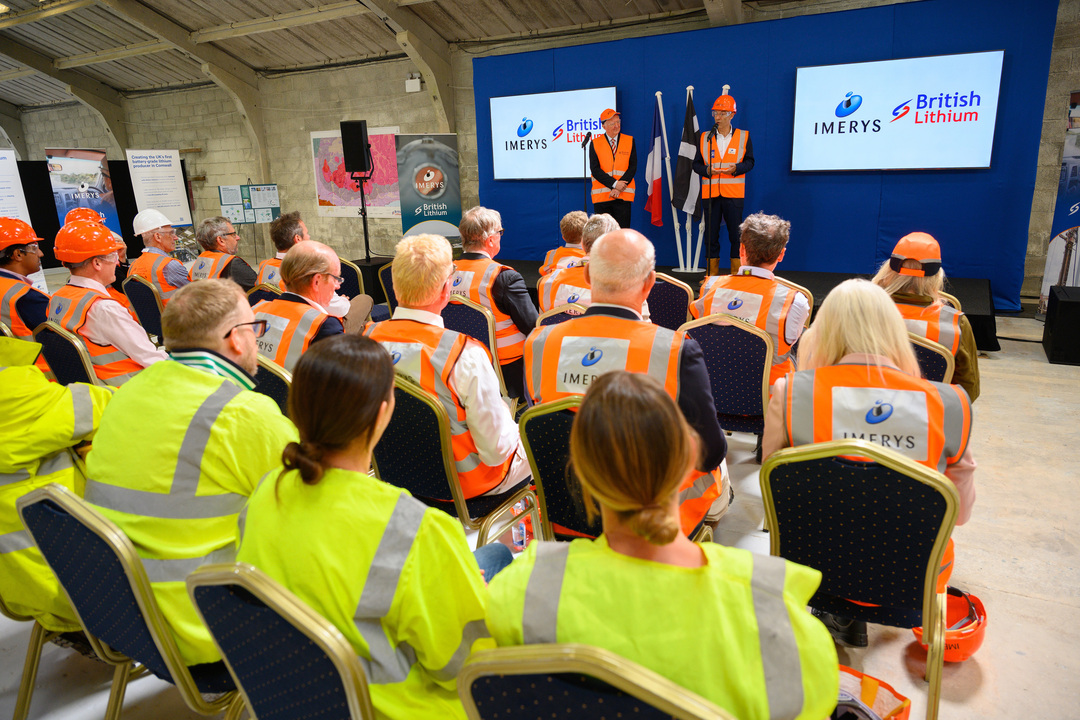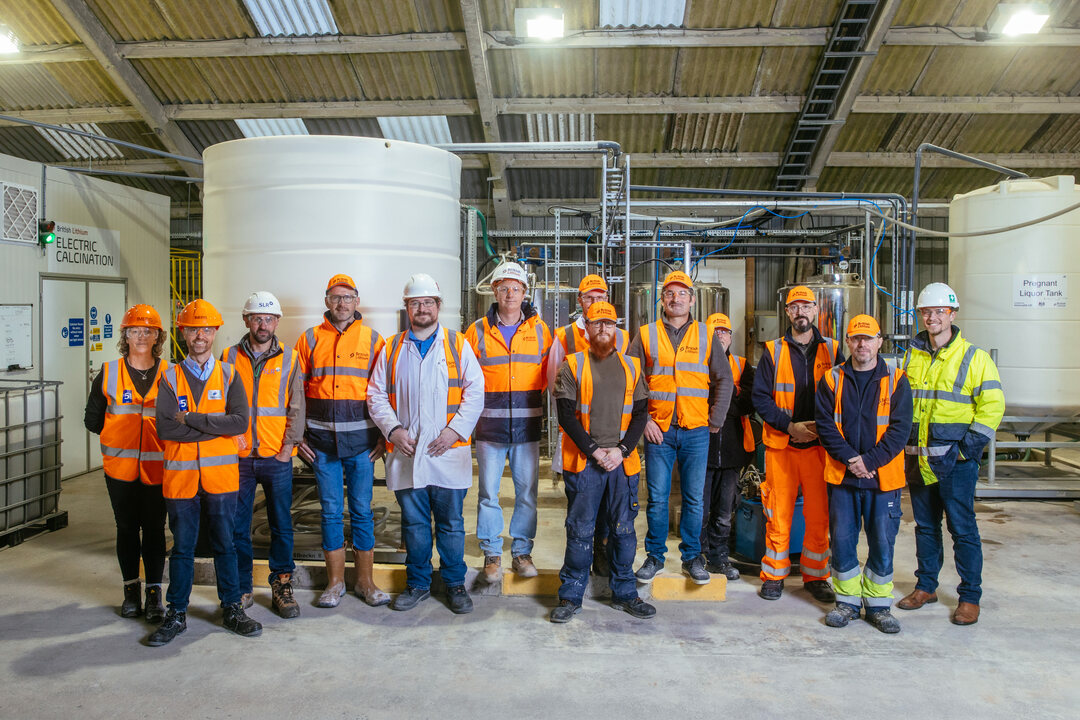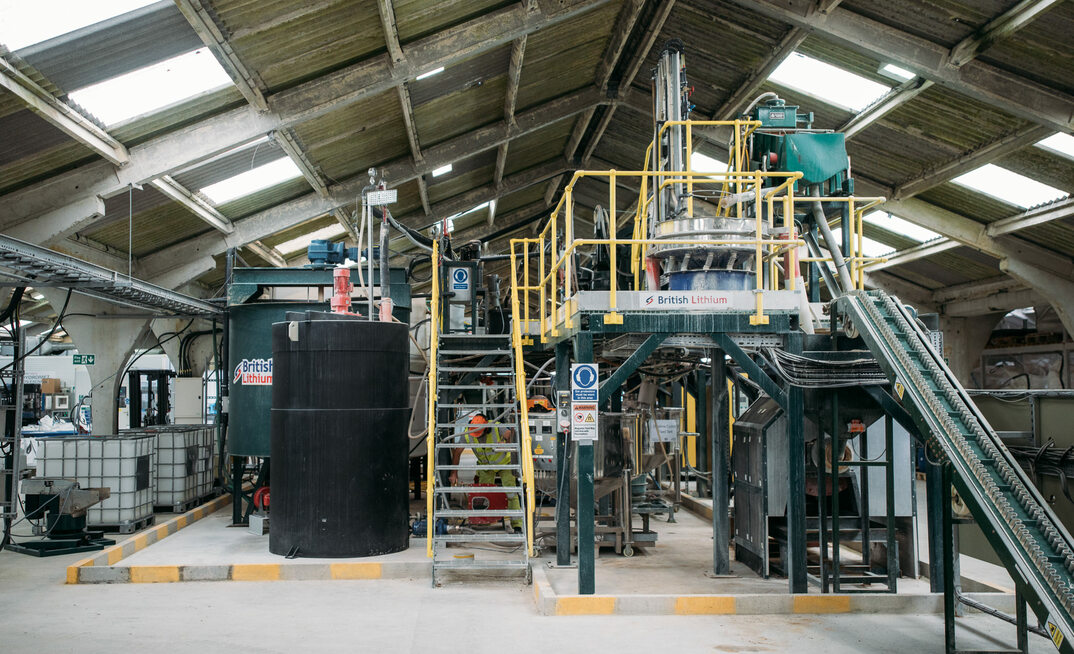Imerys British Lithium is already producing lithium carbonate at its pilot plant in Cornwall and aims to produce enough lithium carbonate for approximately 500,000 EV batteries per year before the end of the decade.
The collaboration between Imerys and Roderick and Andrew Smith started in 2017 when in search of a lithium resource to develop in Cornwall, which had stood out as a surprisingly appealing jurisdiction. This cooperation reached a new level in June 2023 when Imerys formed a JV with British Lithium (80:20 in favour of Imerys), and created Imerys British Lithium to develop what they believe is one of the best hard rock lithium projects in Europe.
Not only does the country offer such essentials as certainty of title and strong rule of law, but the area they homed in on - Cornwall - boasts a strong mining heritage dating back around 4000 years.
While South Crofty, the region's last major tin mine, closed its doors in 1998, other operations continue to the present day. It was at one of these - a kaolin (or China clay) site run by global mineral specialist Imerys - where the Smiths saw the potential for a lithium development. This led to them setting up British Lithium, drilling what was the first-ever lithium exploration hole in the UK. This started a collaboration with Imerys, a European leader in the development of solutions in the fast-growing lithium-ion battery market, including the production of carbon black, synthetic graphite and lithium at a similar mining project in France.

"It has long been known that lithium is present in some Cornish granite. As luck would have it, we found lithium within one of Imerys' existing China clay pits that had been historically mined. Based on several years of work to assess the potential opportunity, we believe this deposit has a future as an important lithium project serving the energy transition." said Imerys lithium projects vice president Alan Parte.
"We drilled our first hole in 2017 and we found mineralisation from the top of the hole down to 200m. A typical spodumene deposit might have 25m of mineralisation and be steeply dipping with a high strip ratio. At this project, the whole thing is mineralised from the surface," added Smith.
The company recently drilled a massive 720m core hole which again showed mineralisation from top to bottom, suggesting it could be among the thickest known lithium deposits in the world.
"It's very homogenous, and the strip ratio will be very competitive," said Smith.
Smith was quick to point out that comparison with a typical spodumene deposit is not entirely appropriate because the mineral they are dealing with is in fact zinnwaldite, which is different from other lithium projects and which requires a unique technology to extract it.
"So we developed and patented a two stage sustainable process that limits the use of chemical products, using physical separation. We've built a pilot plant treating Cornish ore, which we're running every day producing high purity lithium carbonate," said Smith.
And Imerys British Lithium is in no mood to take its foot off the throttle. The JV is now in the middle of a large drilling campaign with six rigs turning, and is working through a feasibility study that it is aiming to deliver by the end of 2024.

A mineral resource estimate released in May gave a total inferred mineral resource of 160.8Mt, which Smith is confident will grow further. This puts the Cornish project among Europe's largest lithium developments. An updated resource estimate is scheduled for next year.
Further down the road, the JV aims to produce around 20,800t/a of lithium carbonate equivalent from the Cornish site by 2028, enough to supply some 500,000 electric vehicles. This will mean building a full-scale processing plant, and while Smith wouldn't confirm a likely price tag, a figure somewhere between £500 million and £1 billion would be in line with similar planned facilities in continental Europe.
In the meantime, the presence of Imerys affords Smith an air of calm compared to some junior mining chief executives, who live life crawling from one fundraising to the next.
"We're well placed; we don't need to go to the markets or do any fundraising right now," said Smith.
That is not to say Smith has life all his own way. Though moving the project forward in the UK has proven relatively straightforward from a jurisdictional risk perspective, the Imerys British Lithium team is acutely aware that onlookers tend to question the suitability of the UK to host a complex mining development. Building on their experience and knowledge regarding local biodiversity, the team will put forward a responsible project.
"The truth is: you can do mining and mineral processing in the UK. Imerys does so very successfully - we have huge multi-site operations which produce over 800kt of finished product in the UK each year," said Mark Hewson, who leads Imerys in the UK. "We are proud of our track record when it comes to operating respectfully and responsibly in and around the communities that have grown up around an industry that has been there for over 275 years."
"The UK has competitive salaries, all our workers live at home rather than exploration camps as in Africa or Australia, and there's an airport down the street. When we have guests, they just stay in the local Travelodge."
And from a permitting standpoint, the process has been smooth to date.

"Our lithium project is within an existing mine which is already permitted. So this will largely entail a change of use from a disused old China clay quarry to a lithium quarry."
"We don't see as many challenges as we are working in an existing active mining area.
"We've actively engaged with Cornwall Council, who have been very supportive for many years. We've recently submitted our pre-planning application and we've got a robust business case," he added.
Also counting in the companies' favour are the strong career opportunities they can offer. "Our project will offer permanent careers in parts of Cornwall where jobs are more seasonal. So Cornwall Council and the community are quite excited by us," said Smith.
At a macro level, Imerys British Lithium is hoping its development will play a central role in decarbonising the UK automotive fleet.
"The UK produces a lot of cars - about one million per year. The auto industry will need to go through a significant transformation to survive with internal combustion engines to be banned by 2035. So the UK government is looking at policies to accompany this transition towards electric cars. Tata/JLR have just announced a major investment in a lithium cell gigafactory down the road from us in Somerset. So the next logical question is: can you get the lithium domestically? And the answer is: yes you can," said Parte.
ABOUT THIS COMPANY
Imerys British Lithium
In June 2023, British Lithium joined forces with global mineral specialists Imerys to become Imerys British Lithium.
Previously, the team at British Lithium have successfully delivered six resource projects worldwide, they are experienced in maximising the potential of rare concentrations of minerals, both economically and sustainably. Their specialist knowledge combined with the longevity, global-presence and expertise in mineral solutions of Imerys, has shaped Imerys British Lithium – on track to become Europe’s first commercial battery-grade lithium carbonate producer this decade.
HEAD OFFICE:
- Unit 6, Victoria Trading Estate, Roche, Cornwall PL26 8LX
- Telephone: +44 (0)1726 339345
- Email info@britishlithium.co.uk
- Web: https://imerysbritishlithium.com/
DIRECTORS:
- Andrew Smith
- Roderick Smith
- Peter Long
QUOTED SHARES ON ISSUE: (As of 14/12/2023)
- 84,940,955
MARKET CAP: (As of 14/12/2023)
- €2.3 billion per share as of today
MAJOR SHAREHOLDERS:
- GBL (54%)
- BlueCrest Holding 5%
- Free float 41%



























